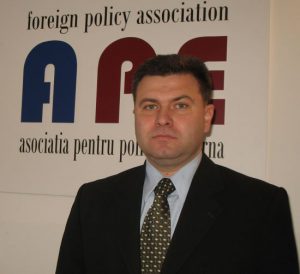On the 29th of July, after eight years governed by the Party of Communists (PCRM), the majority of Moldovan citizens decided to get rid of nostalgic chimeras of the past and chose a European future with al its inherent uncertainties. More than that, they opted for a younger political class, professionally well prepared and with political experience. For the new generation of politicians, Moldova și a democratic, prosperous and European country” is a belief proved by deeds, not only by empty words and slogans.
Accordingly, after the vote on July the 29th, the young generation of politicians, representing different parties, will have to demonstrate that it is capable of providing a democratic, professional, united, stable, coherent and transparent government. If it succeeds in forming such a coalition government, it will, in fact, pass its first major political maturity test.
Success of the future coalition will depend most of all on the political will and the good spirit of the comprising parties, but not least, also on the support of the external partners. From this point, developing cooperative, stable and predictable relations with the Russian Federation is a necessity, while deepening of partnership with the European Union is mandatory.
Otherwise, through their vote on July the 29th, Moldovan citizens banked their future on European integration of the Republic of Moldova. Consequently, without exaggeration, success or failure of this venture will be crucial for the fate of this new generation of politicians, for our country, as well as for the credibility of the EU as a regional actor. Because, it is certain that either success or failure of this endeavor will be equally put on the record of the political class in Chisinau, bur also on the EU. In fact, the vote from July the 29th created a mutual dependency among the success of the new generation of politicians and the success of the eastern policies of the EU, structured in the form of Eastern Partnership.
In the case of a pro-European government coalition formed in Chisinau, the Republic of Moldova will have good chances to become a success story within the Eastern Partnership. But, in order to fulfill this aspiration, not only Chisinau, but also Bruxelles will have to demonstrate flexibility, political will and non-conformist/innovative thinking on subjects like the European perspective, liberalization of visa regime or trade liberalization etc.
Meanwhile, it is extremely important that potential components of the future government coalition are not treated anymore like some chaotic, incoherent, radical, selfish parties, and thus incapable of forming a stable coalition. To the opposite, treating them as a possible alternative to the government will increase their credibility in front of their opponents, particularly in front of ordinary citizens.
Also, if the EU wants to maximize the impact of the Eastern Partnership, then Bruxelles should gradually eliminate certain structural hindrances of the European Neighborhood Policy (ENP). First of all, EU has to become not only visible in Moldova, but also perceivable and equally respected by both the Moldovan citizens and politicians.
Thanks to ENP, during the last years, EU has become an omnipresent actor in the internal life of our country. When we talk about modernization of the economy și diversification of trade, harmonization of legislation with European standards, assuring energy security, solving the transnistrean conflict etc. as a whole EU is perceived as an essential partner. Thus, despite its immediate vicinity, its growing economic and financial presence, its political presence has been constantly ignored by the government in Chisinau. For instance, during the last two years, the EU representatives of various ranks have warned the official Chisinau that the implementation of the Action Plan with EU leaves much to be desired in a whole range of issues like: freedom of mass media, independent judiciary, respect for human rights, and fight against corruption. Every time though Moldovan politicians pretended not to hear, ignoring, disrespecting, and concealing recommendations and observations coming from different EU capitals.
Lack of a strict conditionality between the progresses in the field of reforms taken on in the Action Plan and the benefits is one of the main causes why EU does not succeed in capitalizing to an adequate extent its real status/political influence. In order to correct this deficiency, the next legal framework that the UE is going to negotiate with our country will have to make more efficient the conditionality system present in ENP and in its eastern dimension și Eastern Partnership. This is not a caprice, it has to be done despite what party or parties are in power in the Republic of Moldova in the next years. Thus, EU will have real leverage in order to guide and stimulate the path of reforms in the Republic of Moldova.
Still, making the conditionality more efficient, in terms of benefits for progress counted in tangible reforms, will be extremely difficult to achieve without a clear perspective from the EU in areas such as visa regime liberalization or establishing a deep and comprehensive free trade area with the EU.
Offering a clear perspective in time in the aforementioned fields, but strictly conditioned by the qualitative fulfillment of the solicited measures and reforms, EU would succeed, on the one hand, in empowering the mechanism of reform implementation by the Moldovan authorities, and on the other hand, in motivating Moldovan citizens to monitor the actions of the government intended to fulfill the conditions fixed by the EU. By doing so, Bruxelles would help the ordinary citizens to better perceive the benefits offered by the EU and at the same time to become more aware of the importance of their own contribution to bringing to fruition those benefits.
Of course we are conscious of the reticence coming from the EU member states in regards of visa regime liberalization with the Eastern European countries, including the Republic of Moldova. We are also aware of the reasons that are behind these expectative positions. The question is whether the EU also knows what is at stake in our country at the moment. It still remains to be seen…







